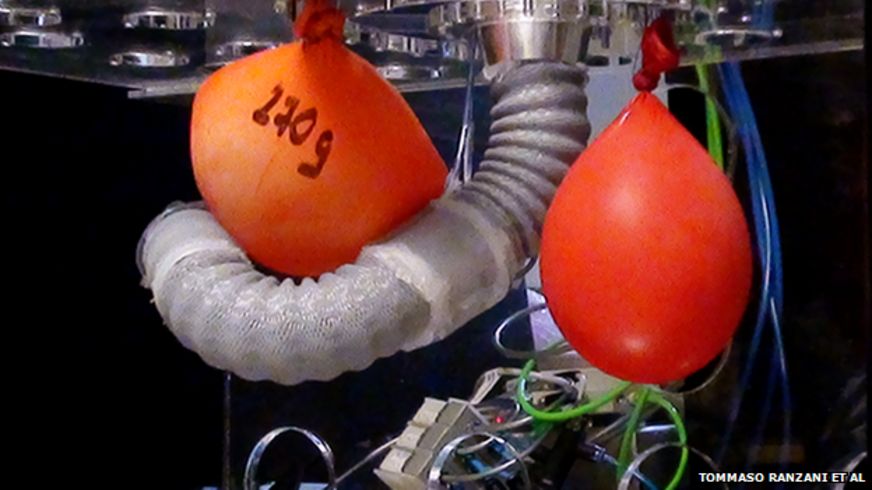- Joined
- May 11, 2013
- Posts
- 24,890
- Reaction score
- 13,614
- Points
- 2,755
- Location
- Morganton, N.C.
- Website
- conversations-ii.freeforums.net
BBC Science: Robotic Tentacle Targets Keyhole Surgery

Thoughts?

Italian engineers have built a robotic arm, aimed at improving surgical operations and inspired by the octopus. Just like its aquatic inspiration, the robotic tentacle has no rigid skeleton; it can bend, stretch and switch between flexible and rigid states as required.
Its movement is driven by inflatable compartments and its stiffness by a central tube containing a specially selected granular medium: coffee. When suction is applied, the granules "jam" to create the desired rigidity.
The design is described in the journal Bioinspiration and Biomimetics. Ultimately, the researchers hope to develop the device so that it can be used in "minimally invasive surgery" - operations performed via a body cavity or a keyhole-type incision.
The human body represents a highly challenging and non-structured environment, where the capabilities of the octopus can provide several advantages with respect to traditional surgical tools," said lead author Tommaso Ranzani, from the Sant'Anna School of Advanced Studies in Pisa.
Coffee core
Dr Ranzani and his colleagues set out to build a tentacle that could, for example, wind its way into an awkward target area and then hold delicate organs out of the way with one stretch of its length, while another part of the arm operates.
"Traditional surgical tasks often require the use of multiple specialized instruments such as graspers, retractors, vision systems and dissectors, to carry out a single procedure," Dr Ranzani said. He believes the robotic tentacle could trim that number of instruments and simplify operations.
The current prototype is 14cm long and 3cm across and split into two sections. Running the length of each section are three cylindrical chambers that can be pumped full of air to varying degrees, lengthening or bending the arm.
At the centre is another chamber, packed with coarse-ground coffee. When air is sucked out of this compartment, the granules jam together and the arm becomes more rigid.
Other robotics engineers were impressed by the Italian team's work but emphasised that it is still a long way from the surgery. There are many laboratories and companies working on special surgical robots, and this effort is still at an early stage.
"The concept has a great deal of potential and the implementation is clever," commented Ravi Vaidyanathan, a senior lecturer in bio-mechatronics at Imperial College in London. He told the BBC it was "a wonderful initial proof-of-concept" with some distance to travel.
"There's a great deal of testing and refinement to be done before it's ready for the operating theatre," Dr Vaidyanathan said.
Thoughts?
